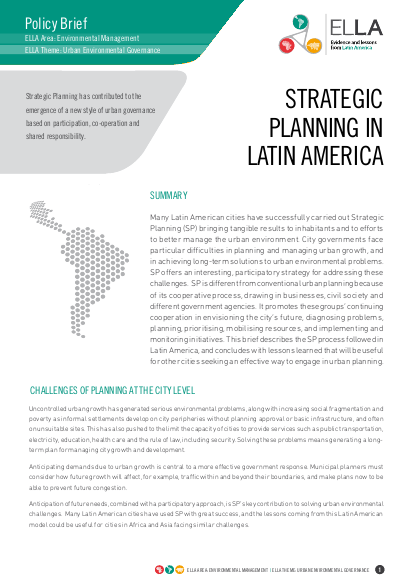
Many Latin American cities have successfully carried out Strategic Planning (SP) bringing tangible results to inhabitants and to efforts to better manage the urban environment. City governments face particular difficulties in planning and managing urban growth, and in achieving long-term solutions to urban environmental problems. SP offers an interesting, participatory strategy for addressing these challenges. SP is different from conventional urban planning because of its cooperative process, drawing in businesses, civil society and different government agencies. It promotes these groups’ continuing cooperation in envisioning the city’s future, diagnosing problems, planning, prioritising, mobilising resources, and implementing and monitoring initiatives. This brief describes the SP process followed in Latin America, and concludes with lessons learned that will be useful for other cities seeking an effective way to engage in urban planning.
Resource collections
- Accountability to affected populations (AAP)
- ALNAP focus topics
- Locally led humanitarian action
- UN Habitat - Urban Response Collection
- Urban Response - Urban Crisis Preparedness and Risk Reduction
- Urban Response Collection - Community Engagement and Social Cohesion
- Urban Response Collection - Economic Recovery
- Urban Response Collection - Environment and Climate Change
- Urban Response Collection - Housing, Land and Property
- Urban Response Collection - Urban Crisis Response, Recovery and Reconstruction
- Urban Response Collection - Urban Resilience